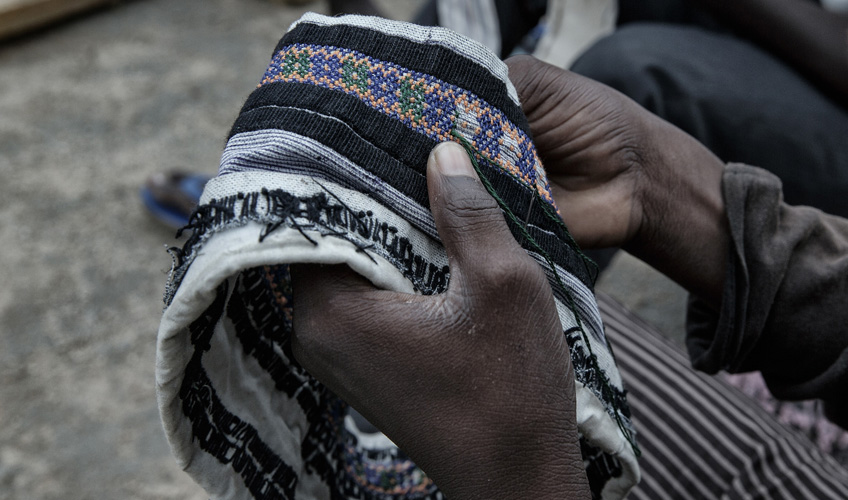Life after Boko Haram: Bunu and Doma's story
Violent conflict in Northeast Nigeria has divided families and inflicted deep psychosocial trauma. Bunu* lost his entire family with the exception of his sister, Doma*. However, Doma was soon taken from him too when their village in Gwoza local government area (LGA) was attacked by Boko Haram.

Bunu thought Doma had willingly followed the insurgents, and was deeply hurt to know that his sister could align herself with the same people that killed their entire family.
However, like thousands of women and girls in Nigeria since 2009, Doma was kidnapped against her will.
“My experience with them was horrible, I have been locked with little or no food and water for days because I refused to agree to their requests.”
Bunu soon learned that his sister was not only alive, but also a survivor of violence.
“My parents and siblings were all killed; however, news came to me that my sister, Doma, has been taken away by Boko Haram. I have always thought she followed them on her own free will without persuasion.”
This did not make the situation easier for Bunu, he had witnessed the stigmatisation of other women and girls that had returned from captivity, and did not want to be associated with it.
Prior to her return to the camp, I have seen how returnees like her and their families have been stigmatised due to the presence of a victim in the family. I did not want to go through such shame and ridicule myself. The fear of being stigmatised did not allow me to accept her.
“When she came back, the tension between us was evident. I couldn’t bring myself to accept her. I see her around the camp, and it hurts not to talk to her. I think I am afraid of what people will say.”
Doma was re-victimised by her brother upon her arrival at the IDP camp.
“When I returned, my only brother rejected me. He didn’t want to have anything to do with me. I couldn’t understand fully why he didn’t want to. That feeling of rejection from someone you had so much hope for was really hurtful.”
After Doma participated in International Alert’s sensitisation workshops for women and girls who have survived sexual violence by Boko Haram, she requested for the project to help reunite her with her only living brother who was residing in the same IDP camp. Bunu was invited into the family workshops to learn how to understand her ordeal, for him to express his own grief and challenges with loss, and to prepare his heart for her to be a part of his life again.
Bunu said:
Through a series of counselling and advise sessions by those leaders trained by International Alert, I started having peace of mind. I consider these leaders my second family and I am appreciative of their efforts to get me and my sister back together as a family. No one has ever advised me on this issue before. With that, I called my sister back. She is presently living under my care. I will support her and her baby from now henceforth.
“I’ve come to realise the importance of family support towards Doma’s reintegration and as the only existing family she has, I am more than willing to support her.”
As a result of the support International Alert provided to Bunu, he goes onto say:
“I do not care what anybody will say about me or my sister, although I know with time everyone will come to realise the dangers in stigmatising victims like her.
“I also realised the need for us to support one another through it because it has not been easy for me as well. Seeing her around me has really helped me to overcome my sorrows. I have someone I can talk to now.”
About the project
Reducing stigma against those affected by Boko Haram was a project in Borno state, northeastern Nigeria to address the stigma and negative perceptions associated with women and girls who have escaped Boko Haram, as well as children born out of sexual violence.
Addressing the obstacles to women and children’s reintegration is critical for their survival and long-term peace in the country. We hoped to improve understanding of the challenges faced by women and children returning home by holding community workshops in internally displaced peoples camps and broadcasting radio programmes on stigma and sexual violence.
This pilot project was able to demonstrate positive attitudinal and behavioural changes within the community and as a result, has been extended in geographic scope, donor funds and partnerships since 2016.
*Names changed to protect identity.






